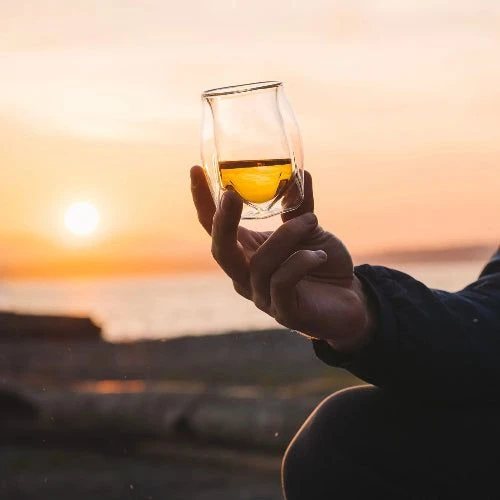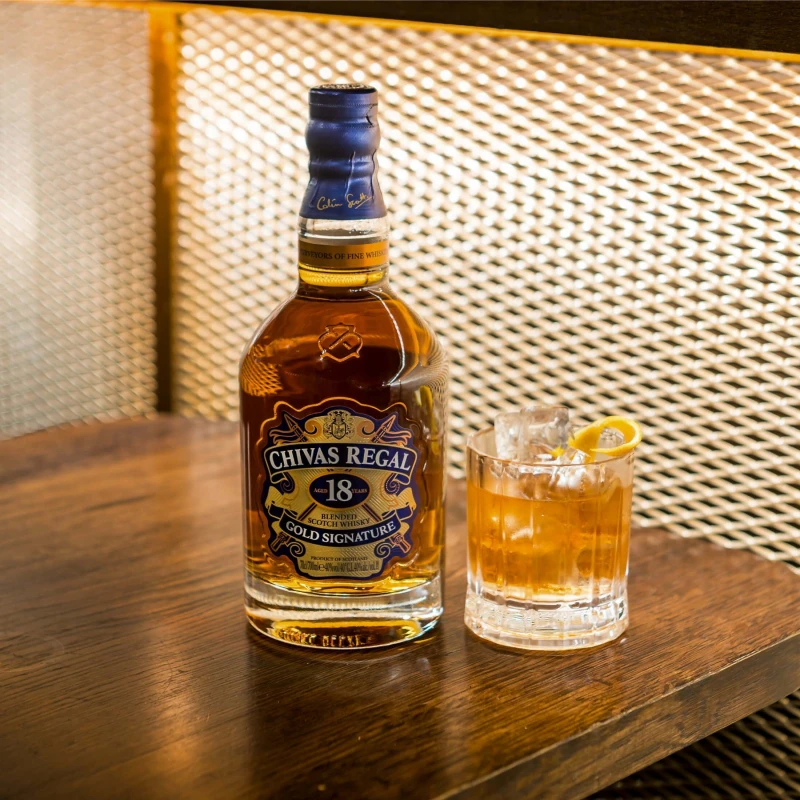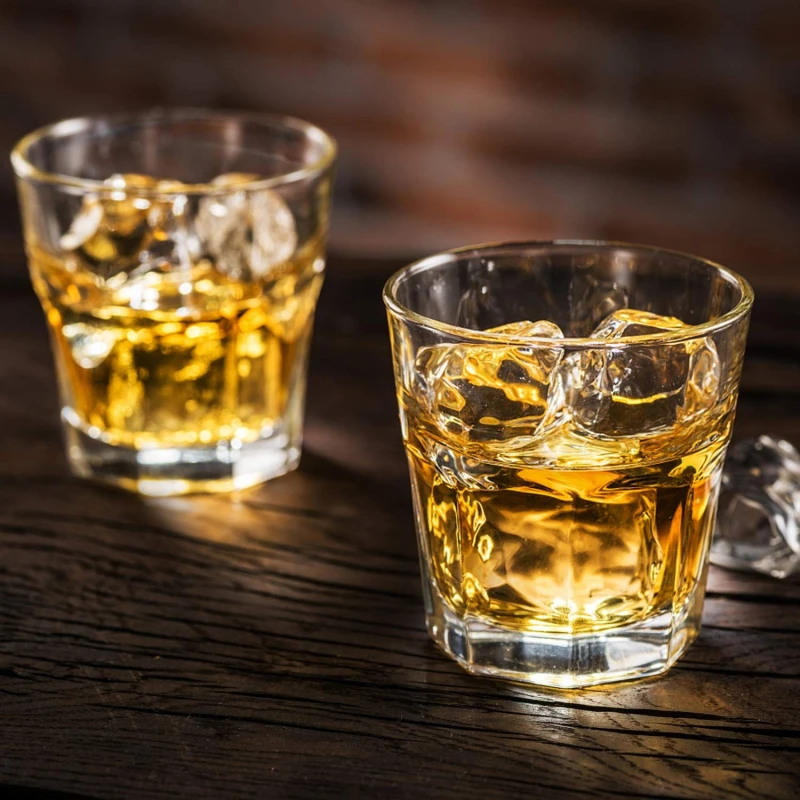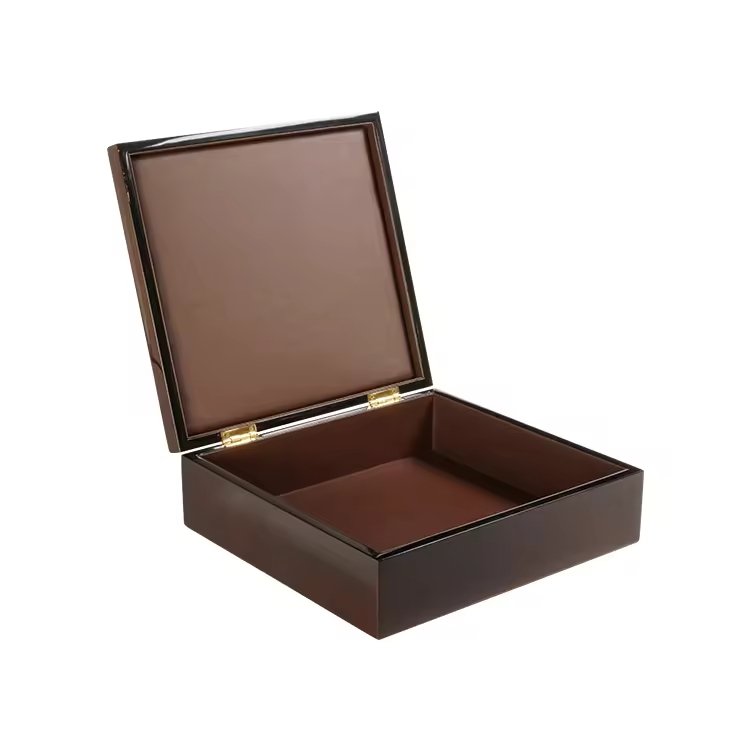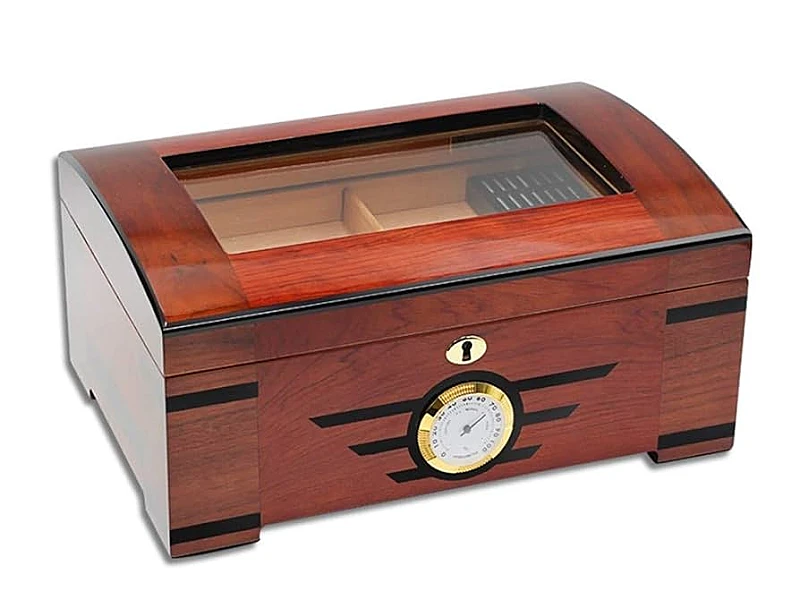
Cigar boxes live in very different environments. What survives in Germany may warp in Miami. Climate always decides material behavior.
Yes, recommending material combinations based on local climate is essential. The wrong choice can cause warping, odor changes, or cigar spoilage, while the right choice ensures long-term stability.
I will explain how climate affects wood, fabrics, and finishes, and how manufacturers can guide clients with smarter choices.
How do different climates (humid, dry, tropical, temperate) impact the performance of cigar box materials?
A cigar box is not just storage. It must balance with the air around it. Climate decides if it succeeds or fails.
In humid and tropical regions, woods swell and resins bleed. In dry regions, cracks and shrinkage appear. Temperate climates cause seasonal shifts that stress joints.

-
Humid/Tropical (Miami, Singapore, Havana):
High humidity makes Spanish cedar release resins faster. Mahogany may swell, loosening joints. Lacquer finishes can bubble if the wood expands too much. Mold also grows faster on fabrics. -
Dry/Arid (Arizona, Dubai):
Dry air pulls moisture from wood. Spanish cedar can shrink, causing gaps at miters. Mahogany may crack if not sealed. Fabrics like velvet turn brittle. Cigars dry out quickly without humidification. -
Temperate (Germany, USA Northeast):
Four seasons mean expansion and contraction cycles. Winter dryness makes lids loose, while summer humidity tightens them. Over years, this weakens the box structure unless multilayer construction is used. -
Stable Coastal Mediterranean (Spain, Italy):
Mild swings reduce stress. Boxes last longer with less warping. This is why many European humidors have survived for decades without major problems.
From experience, most client complaints come from humid or dry extremes. That is why knowing the buyer’s climate is so important during material selection.
Why might Spanish cedar work better in some regions, while composite or treated woods are safer in others?
Clients love Spanish cedar, but climate decides if it helps or hurts. Sometimes composites or treated woods are the smarter choice.
Spanish cedar is ideal in stable or humid climates for aroma and cigar protection. In extreme dry or shifting climates, engineered cores or treated woods give more stability.

Spanish cedar has unique benefits: insect resistance, pleasant aroma, and humidity regulation. In tropical or humid regions, it performs well because it helps balance moisture. However, its softness means it can warp or crack in very dry air. Resin bleeding is also worse in hot climates if cedar is not seasoned.
Composites like MDF or plywood with cedar veneer offer stability. They move less with climate changes. In desert regions like the Middle East, I often recommend engineered cores with cedar lining. This prevents cracking while still giving the aroma of cedar. Treated woods, like kiln-dried mahogany or sealed hardwoods, also reduce problems in unstable climates.
The smartest approach is to combine both: use Spanish cedar as a lining, but rely on engineered or treated woods for structure. This way, the box keeps its function and beauty, while resisting climate stress.
Could leather, velvet, or fabric interiors behave differently under high humidity or extreme dryness?
Luxury clients like soft-touch interiors. But fabrics and leather do not always cooperate with climate.
Yes, fabrics and leathers react strongly. In humid regions, they trap odors and mold. In dry regions, they dry out, crack, or fade.
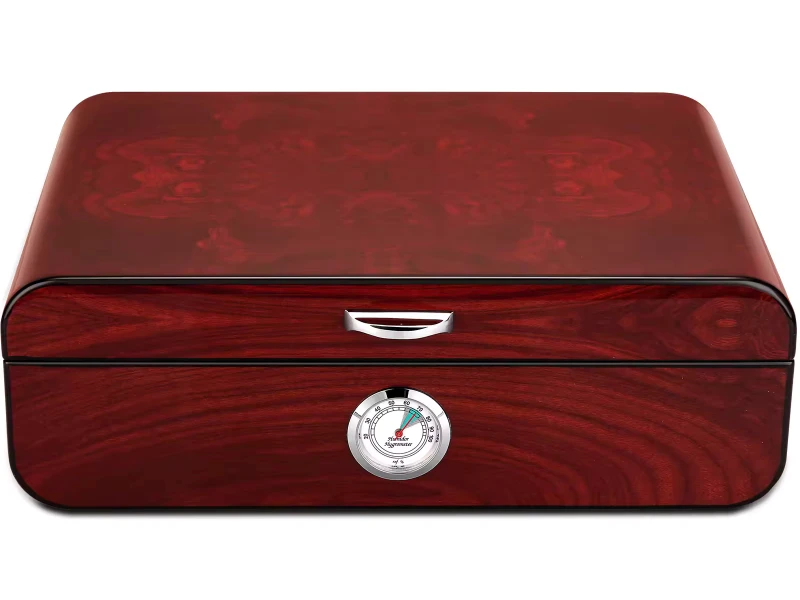
-
Leather:
In humid climates, leather absorbs moisture, leading to musty odors and mold spots. In dry climates, it cracks and stiffens. Special tanning or conditioning is required to survive long-term. -
Velvet/Suede:
Fabrics absorb humidity and may hold a permanent “damp smell.” Adhesives used for velvet often release odor if humidity is high. In dry climates, fabric fibers weaken, and the texture loses softness. -
Satin or Silk Interiors:
These delicate fabrics are beautiful but extremely sensitive. They discolor in humidity and weaken in dry air. Only safe in stable, temperate climates.
From my experience, fabrics are risky for tropical clients. I once shipped a batch of velvet-lined boxes to Hong Kong. Within months, the velvet developed a faint mildew odor. Since then, I recommend cedar interiors for humid regions and fabric only for stable climates.
How do seasonal changes in a client’s region affect the long-term stability of box joints, linings, and finishes?
Climate is not static. Seasonal swings are as dangerous as extremes.
Seasonal changes cause expansion and contraction cycles. Over time, this stresses joints, loosens linings, and damages finishes.
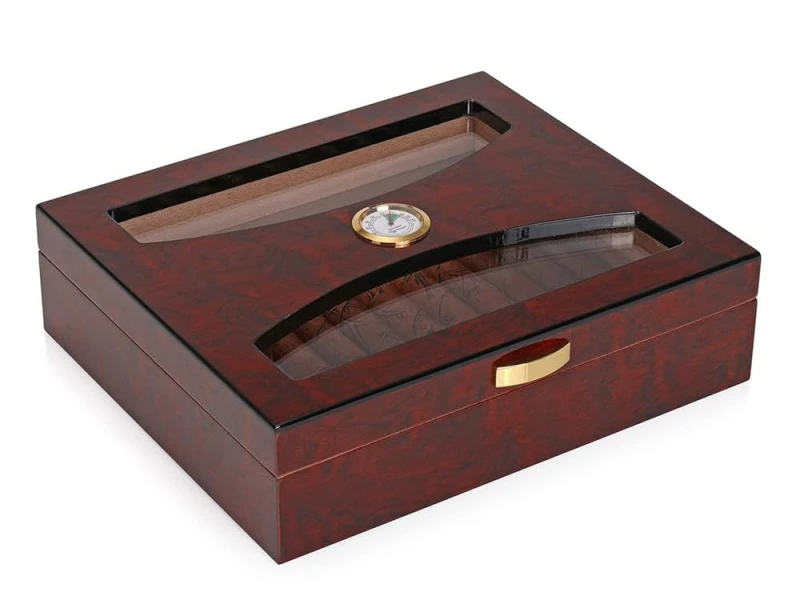
In regions with cold, dry winters and hot, humid summers, boxes undergo constant movement. Spanish cedar expands during summer, tightening lids. In winter, it contracts, and the lid may feel loose. These shifts weaken glue joints over years. Veneers may start peeling at the edges. High-gloss lacquer finishes often crack because the wood below keeps moving.
I saw this with a shipment to Chicago. After two winters, several boxes developed hairline cracks along the lacquered lid. The root cause was seasonal humidity cycling. We solved it by switching to cedar veneer over MDF, which kept movement under control.
Seasonal shifts also affect linings. Raw cedar inside may pull away from the structure if not bonded well. That is why multi-layer designs and engineered woods are essential in climates with strong seasonal swings.
Smart design saves the box from climate damage. Preventive choices matter more than repairs later.
Preventive methods include multilayer structures, selective coatings, ventilation channels, and proper wood seasoning.
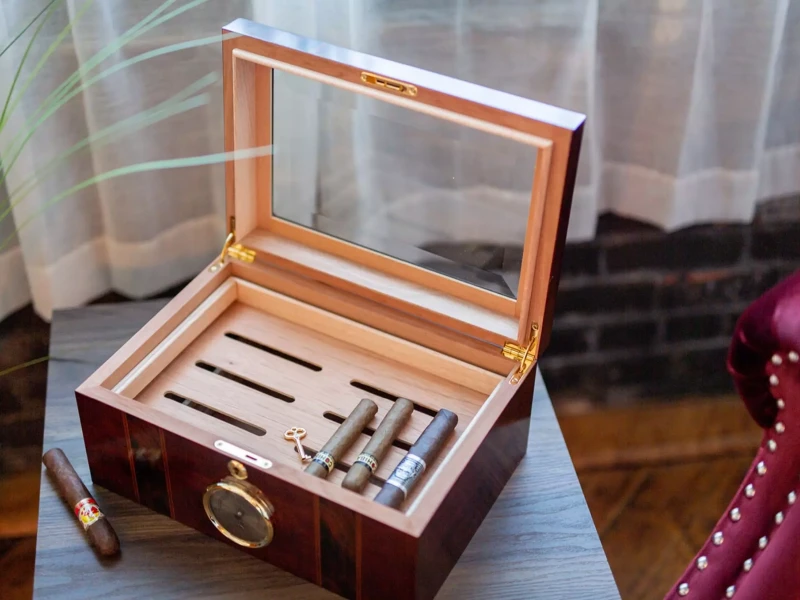
-
Multilayer Construction:
Use MDF or plywood cores with cedar veneer. This stabilizes the box against climate swings. -
Selective Coatings:
Seal exteriors with lacquer for protection, but leave cedar interiors raw. This balances breathability and appearance. -
Ventilation Design:
Small gaps or engineered vents allow air circulation, reducing trapped moisture in humid regions. -
Proper Seasoning:
All woods, especially cedar, must be kiln-dried and aged. This reduces future resin bleeding or cracking.
| Preventive Method | Climate Risk Reduced | Extra Cost Impact |
|---|---|---|
| MDF/plywood core | Warping, cracking | Medium |
| Lacquer coating outside | Moisture absorption outside | Low |
| Raw cedar interior | Aroma, cigar protection | Neutral |
| Air vents or spacing | Mold in humid climates | Low |
| Kiln-dried seasoning | Resin bleed, odor issues | High (time cost) |
Premium manufacturers often combine all these techniques. The added complexity pays off with long-term stability and fewer client complaints.
How can manufacturers educate clients on climate-matched material selection to ensure cigar preservation?
Even the best box fails if the buyer stores it wrong. Education builds trust and prevents problems.
Manufacturers can guide clients by explaining material behavior, giving climate-specific recommendations, and offering care instructions.

Education starts with honest conversation. When I talk to buyers in Dubai, I explain why solid cedar is risky and why engineered cores are safer. When selling to Miami, I remind clients to avoid fabric interiors because of mold risk. By tailoring advice, I prevent costly complaints.
Manufacturers should also provide written care instructions. These can include ideal humidity ranges, recommended maintenance, and warnings about extreme conditions. Some brands even include QR codes in their boxes linking to climate-care guides. This small step reassures high-end clients that their investment is protected.
Educating buyers also builds trust. When clients see that I recommend practical solutions over upselling, they return for repeat orders. They know I am not only selling boxes but helping protect their cigars.
Conclusion
Climate decides how cigar box materials behave. Recommending climate-matched combinations protects both cigars and brand reputation.
Brand Name: WoodoBox
Slogan: Custom Wooden Boxes, Crafted to Perfection
Website: www.woodobox.com
WhatsApp: +86 18359265311

